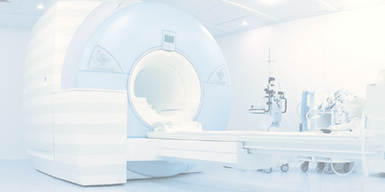Posted by Keith J - Tactical Solutions on 11th Jul 2025
Protecting Patients and MRI Equipment: The Critical Role of Metal Detection Before Scanning
Magnetic Resonance Imaging (MRI) is a powerful diagnostic tool, but it comes with inherent risks if proper safety protocols aren't followed. One significant concern is the presence of metallic objects on or within a patient's body, which can lead to severe safety hazards and equipment damage. Implementing thorough metal detection procedures prior to MRI scans is essential to mitigate these risks.
The Hidden Dangers of Undetected Metal
Metallic objects can interact adversely with the strong magnetic fields generated by MRI machines. Even small ferromagnetic items can become projectiles, posing serious threats to patient and staff safety. Additionally, certain metals can cause burns or interfere with image quality. In worst-case scenarios, undetected metal can lead to a magnet quench, a sudden loss of superconductivity in the MRI magnet. This event not only halts diagnostic services but also results in the rapid boil-off of liquid helium used to cool the magnet.
The financial implications of a quench are substantial. Replenishing the lost helium can cost up to $100,000, not including additional expenses related to equipment downtime and potential repairs.

CEIA PD240CH: A Solution for Enhanced Safety
To address these challenges, the CEIA PD240CH handheld metal detector offers a reliable solution for pre-MRI screening. Designed specifically for medical environments, this device can detect both ferrous and non-ferrous metals, ensuring comprehensive screening. Its features include:
- Dual Sensing Capability: Effectively identifies a wide range of metallic objects.
- Three Operational Modes: Tailors detection sensitivity for all metals, body, or head-specific screening.
- High Precision Pinpointing: Utilises dual-tone audio and dual-colour visual indicators for accurate localisation.
- User-Friendly Design: Lightweight and ergonomically designed for ease of use in clinical settings.
By integrating the PD240CH into the MRI workflow, facilities can significantly reduce the risk of accidents and equipment damage, ensuring a safer environment for both patients and healthcare providers.
Implementing rigorous metal detection protocols before MRI scans is not just a best practice, it's a necessity for patient safety and equipment preservation. Investing in reliable detection technology like the CEIA PD240CH can prevent costly incidents and enhance the overall quality of care.
For information on how the device can assist your facility, contact Tactical Solutions at www.tactical-solutions.com.au

